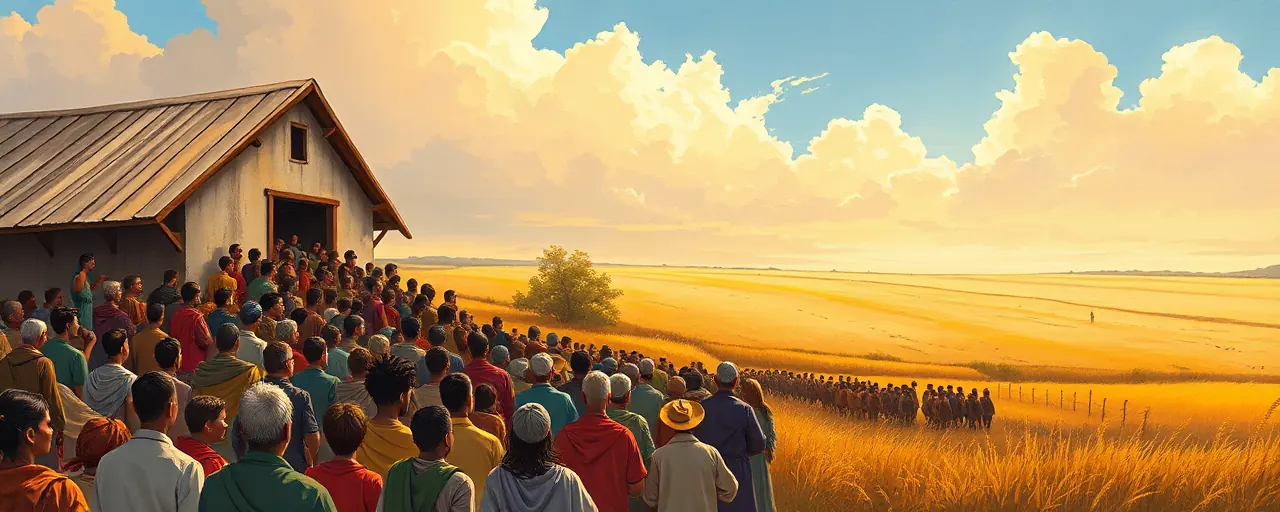A Church's Fight for a New Home
In a quiet corner of North Carolina, Summit Church has worshipped in a high school for years, its congregation spilling beyond the borrowed space. The church, seeking a permanent home, applied to rezone land in Chatham County to build a new place of worship. The county's rejection of that request has sparked a legal battle, drawing attention to a federal law designed to protect religious groups from restrictive land use rules.
The dispute centers on the Religious Land Use and Institutionalized Persons Act, a federal statute passed in 2000 to shield religious institutions from zoning decisions that unfairly limit their ability to practice their faith. Summit Church argues that the county's denial violates this law by treating it less favorably than secular organizations and imposing an undue burden on its religious activities.
The U.S. Department of Justice has stepped in, filing a statement of interest in support of the church’s claims. The move underscores a broader national tension: how to balance local governments’ authority to shape their communities with federal protections for religious freedom. For Summit Church, the outcome could determine whether it can finally build a space to meet its growing needs.
This case, unfolding in a federal court in North Carolina, is one of many across the country where religious groups are challenging zoning decisions. It raises questions about fairness, community priorities, and the role of federal oversight in local disputes.
The Law at the Heart of the Dispute
The Religious Land Use and Institutionalized Persons Act, often called RLUIPA, prohibits local governments from imposing zoning rules that place a substantial burden on religious exercise unless they can show a compelling reason, like public safety, and prove they’ve used the least restrictive approach. It also requires that religious institutions be treated at least as well as secular ones, such as theaters or community centers.
Summit Church contends that Chatham County’s decision to block its rezoning request violates both of these principles. The church points out that other nonreligious groups have been granted similar zoning approvals, suggesting unequal treatment. It also argues that the denial forces it to remain in an inadequate space, hindering its ability to serve its congregation.
The county, however, defends its decision as a legitimate exercise of its zoning authority. It claims the rejection was based on standard land use considerations, like traffic or neighborhood compatibility, and not on the church’s religious character. The county has asked the court to dismiss the case, arguing that its zoning process is a legislative act exempt from the federal law’s reach.
The Justice Department’s intervention complicates the county’s position. By supporting the church’s claims, the department signals that it sees potential violations of federal law, a stance that carries weight given its history of enforcing RLUIPA in similar cases across the country.
A Pattern of Conflict
Summit Church’s struggle is not an isolated incident. Religious institutions nationwide, from small startups to established congregations, often face hurdles when seeking to build or expand. Zoning boards frequently cite concerns about traffic, noise, or property values, but religious groups argue these reasons sometimes mask discomfort with their presence or beliefs.
Minority faiths, in particular, report frequent challenges. For example, Muslim communities seeking to build mosques have faced denials or delays in several states, prompting Justice Department investigations. Similarly, Orthodox Jewish congregations in New Jersey and Florida have sued over zoning restrictions, claiming they were unfairly targeted compared to secular projects.
The Justice Department has taken an active role in these disputes, launching its Place to Worship Initiative in 2018 to educate local officials and protect religious groups. Since RLUIPA’s passage, the department has opened over 150 investigations and filed dozens of lawsuits, often securing settlements that require municipalities to approve permits or revise discriminatory rules.
Weighing Local Control Against Federal Protections
At the core of these disputes lies a tug-of-war between local governments’ desire to control development and federal mandates to safeguard religious freedom. Zoning laws allow communities to shape their physical and economic landscapes, but when they clash with religious needs, the results can be contentious.
Courts have grappled with defining what counts as a substantial burden under RLUIPA. Some require religious groups to show they have no viable alternative locations, while others focus on whether the zoning denial significantly disrupts their ability to practice their faith. These varying standards create uncertainty, leaving outcomes dependent on the specific court and facts of each case.
For residents of Chatham County, the Summit Church case may stir debates about what their community should look like. Some may welcome a new church as a community asset, while others might worry about changes to traffic patterns or property values. Balancing these concerns with federal requirements is a challenge municipalities face nationwide.
Looking Ahead
As Summit Church awaits a court ruling, its case highlights the ongoing friction between local zoning power and federal protections for religious exercise. A decision in the church’s favor could force Chatham County to approve the rezoning and set a precedent for similar disputes. A ruling for the county, however, might embolden other municipalities to defend their zoning decisions, potentially limiting religious groups’ options.
Beyond this case, the broader conversation about religious freedom and land use is far from settled. With religious diversity growing and urban areas facing development pressures, these conflicts are likely to persist, testing the boundaries of federal law and local authority in courtrooms and communities across the country.
